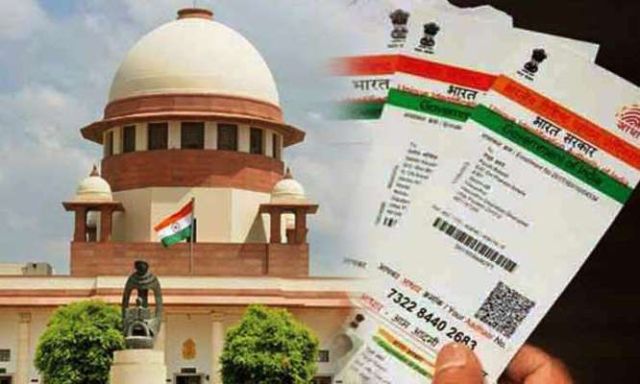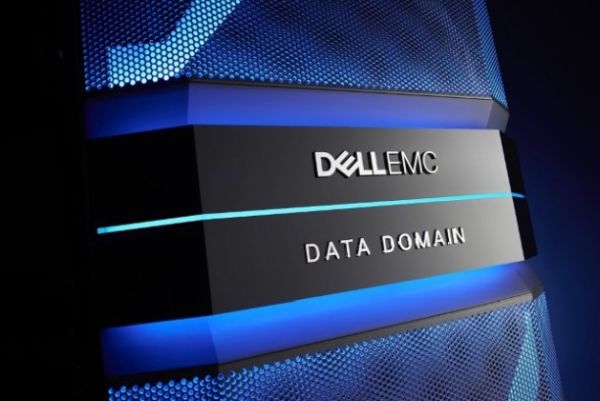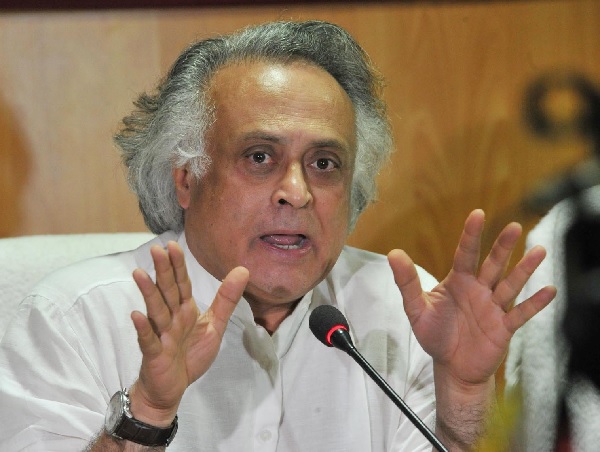
by Editor | May 25, 2021 | Corporate, Corporate Governance, News, Politics
 New Delhi : In a landmark judgement, the Supreme Court on Wednesday upheld the legality of Aadhaar restricting it to disbursement of social benefits and junking its requirement for cell phones and bank accounts.
New Delhi : In a landmark judgement, the Supreme Court on Wednesday upheld the legality of Aadhaar restricting it to disbursement of social benefits and junking its requirement for cell phones and bank accounts.
In a majority judgement, a five-judge bench headed by Chief Justice Dipak Misra held that Aadhaar would be voluntary and not mandatory with an option to exit.
The bench also said no to creation of metadata and making it accessible to individuals and corporate entities.
In a minority judgement, Justice D.Y. Chandrachud held that passing the Aadhaar law as money bill was a fraud on the Constitution because it was not a money bill.
He also observed there was a risk of surveillance of people on the basis of data collected under Aadhaar scheme and that the data could be misused.
The court struck down Section 57 of the Aadhaar Act which allows private entities to demand Aadhaar to access their services.
The court also said that as of today “we do not find anything in Aadhaar Act which violates right to privacy of individual citizen”.
The judgement, read out by Justice A.K. Sikri on behalf of the bench, also struck down the provision in Aadhaar law allowing the sharing of Aadhaar data, citing grounds of national security.
The judges who gave the majority ruling were A.M. Khanwilkar, Ashok Bhushan, Misra and Sikri who approved the passage of Aadhaar law as money bill.
“We are of the view that there are sufficient safeguard to protect data collected under Aadhaar scheme,” the judgement said.
Linking of Aadhaar to issuing mobile phone connections and opening bank accounts was unconstitutional, the court held.
The majority of the bench held that Aadhaar was valid for linking with Income Tax returns.
The verdict said that it was better to be unique than the best because being the “best makes you number one, but being unique makes you the only one.
“Uniqueness is the fundamental difference between Aadhaar and other identity proofs. There is a fundamental difference between Aadhaar and other identity proof as Aadhaar cannot be duplicated and it is a unique identification,” it said.
The judgement said that UIDAI was established as a statutory body, providing for authentication and all residents were eligible to get Aadhaar which cannot be reassigned to anyone.
“Minimal demographic and biometric data of citizens are collected by UIDAI for Aadhaar enrolment. We are of the view that there are sufficient safeguard to protect data collected under Aadhaar scheme.”
The court said that Aadhaar was meant to give dignity to marginalised sections. However, authentication of data through Aadhaar cannot be stored for more than six months.
It said Aadhaar was meant to help benefits reach marginalised sections and it took into account the dignity of people not only from the personal but also the community point of view.
“No person will be denied benefits under social welfare scheme because of failure of authentication through Aadhaar,” the court said.
“We direct the government to ensure that illegal migrants are not issued Aadhaar to get benefits of social welfare schemes.”
The court said that institutions like the Central Board of Secondary Education (CBSE) and University Grants Commission (UGC) cannot make Aadhaar mandatory.
“Aadhaar for school education would not be necessary because it is neither welfare nor subsidy,” the court said, holding that Sarva Shiksha Abhiyan does not require Aadhaar.
—IANS

by Editor | May 25, 2021 | C S R, Corporate, Markets, News, Online Marketing, Technology
 By Bhavana Akella,
By Bhavana Akella,
Bengaluru : Riding on the fourth industrial revolution with disruptive technologies, global computer data storage major Dell EMC is building IT infrastructure for citizen services like Aadhaar in “Digital India”.
“As a leading hardware vendor, we build IT infrastructure also for the government to provide citizen services like Aadhaar, passports, invoices of customs and GST settlements,” Dell EMC India Managing Director Rajesh Janey told IANS here.
Though US-based Dell Technologies has been hard-selling its computers, laptops, tablets and servers in India over the years, it began providing data storage, hybrid Cloud and data protection solutions to enterprises and state-run organisations following its acquisition of EMC in 2016 for a whopping $67-billion (Rs 4.61 lakh crore).
In September 2016, Dell Technologies acquired Massachusetts-based data-storage systems major EMC Corp, founded in 1979 and named after its founders Richard Egan, Roger Marino and John Curly, in one of the largest deals in the technology sector, worldwide.
“Data on the unique identification card (Aadhaar) issued to citizens is run and stored on our server racks managed by third-party vendors,” Janey said in an exclusive interview.
Similarly, passports are archived on the company’s storage while Customs and Excise departments use Dell IT infrastructure to raise invoices for businesses.
The company sells IT infrastructure products and services, including flash-based storage, data protection, security, hyper-converged infrastructure, backup solutions for small and medium businesses.
“The central and state governments also use our digital platforms for the Goods and Services Tax (GST) settlements by traders on the GST Network across the country, Janey asserted.
In the enterprise segment, leading banks and telecos use Dell EMC’s hardware for computing, storage and data security.
“Our products and solutions enable enterprises to undergo digital transformation as part of the fourth industrial revolution, leaving behind legacies such as mainframes, client servers and networked work stations,” Janey said.
The first industrial revolution occurred in the 18th century when agrarian practices and rural life under went industrial change with the roll out of the steam engine; the second from 1870 to 1914 marked mass production in industries and the third, from the 1980s, and subseqeuntly witnessed the emergence of personal computers and internet.
In the fourth revolution, disruptive technologies have been replacing the conventional platforms with artificial intelligence (AI), internet of things (IoT), Cloud, robotics and automation.
Hinting that new technologies would disrupt the functioning of many businesses, Janey said the increasing use of AI would make humans digital conductors, telling machines what they have to do.
“More mundane and routine tasks will get offloaded to machines,” he noted.
According to industry estimates, the number of IoT devices — devices, home appliances and vehicles connected through the internet — will explode to 200 billion over the next decade from 20 billion in 2020.
“Dropping cost of networking is fuelling the growth of IoT devices. At the same time, when we have so many devices with data, we need AI to analyse and convert it into actionable intelligence, thereby removing the routine tasks,” the top executive noted.
The evolution of sectors will happen as these technologies are being introduced into them, said Janey, who was earlier EMC’s President for India and the South Asia region.
“The future requires rethinking of what an intelligent human being can do. Our belief is the skilling of workforce will change. People will move away from mundane tasks to higher level skills. Secretarial work will be passe,” he pointed out.
With around 1.3 billion people and growing, India is a huge market for any industry, Janey admitted.
“Skilling our people through initiatives like the government’s Skill India and courses by educational institutions on Big Data are key, as sectors are undergoing digital transformation,” he added.
With India among the top five markets in the world for Dell EMC’s services, after America, China, Europe and Britain, the company is planning to hire more techies in India, Janey said, but did not specify the present workforce present and how many are being hired in the subcontinent.
Dell EMC claims to be the leader in India’s storage market with 43 per cent share by revenue and second-largest in server market with 26 per cent share by revenue.
The company is also said to have leadership in flash-storage and hyper-converged infrastructure segments.
“We are investing $4.5 billion on research and development in fiscal 2018-19. India contributes significantly to the research, particularly in servers,” Janey stated.
“India is ahead of other developing nations in the use of digital infrastructure,” he disclosed.
The country is also at par with the developed nations in innovation as advancements in e-commerce industry like cash-on-delivery and video subscriptions allowing download options by streaming sites are Indian innovations for the world, driven by consumer needs, the official said.
With its diverse offerings through hardware, software and data storage areas, the company is upbeat about its market share increasing in India as businesses head for disruption.
(Bhavana Akella can be contacted at bhavana.a@ians.in )
—IANS

by Editor | May 25, 2021 | Corporate, Corporate Governance, Markets, Networking, Technology
 By Nishant Arora,
By Nishant Arora,
New Delhi : Telecom Regulatory Authority of India (TRAI) Chairman R.S. Sharmas open Aadhaar challenge to critics and hackers is nothing but a case of “misplaced enthusiasm” which dilutes the debate on securing the Aadhaar eco-system, emphasise cyber law experts.
Sharma, who made his 12-digit Aadhaar number open on July 28 and created a tweetstorm — not as a government servant but “as a normal citizen of India” — can set a dangerous precedent for millions of Indians who are still not aware what privacy is all about.
“Throwing such a challenge only shows misplaced enthusiasm. He is treading a dangerous path which can be detrimental in days to come as his personal and bank details are now out in the open,” Pavan Duggal, one of the leading cyber law experts in the country, told IANS.
What the TRAI Chairman has perhaps forgotten is that the central data repository at the Unique Identification Authority of India (UIDAI) may be secure, but several third-party vendors are now increasingly accepting Aadhaar as a key document — and that opens it up for misuse, especially given the weak cyber security laws in the country.
“Several FIRs have been lodged against Aadhaar misuse across the country. People’s confidence in Aadhaar is slowly being eroded and, at this juncture, rather than working extensively on securing Aadhaar, we see a top government official posting his Aadhaar number on Twitter,” Duggal lamented.
Ethical hackers have exposed at least 14 personal details of the TRAI chairman since he revealed his Aadhaar number — including mobile numbers, home address, date of birth (DoB), PAN number and voter ID, among others.
Ethical hackers can’t go beyond this as creating financial break-ins will land them in legal trouble.
“By the way, were you able to cause any harm to me, because now you know my Aadhaar number?” Sharma tweeted to a French security expert, who goes by the nickname Elliot Alderson and uses the twitter handle @fs0c131y, as his personal details began flying all over Twitter.
Alderson replied: “If your phone numbers, address, DoB, bank accounts and others personal details are easily found on the Internet you have no #privacy. End of the story.”
According to Duggal, personal privacy breach begins with the phone number and it is a tragedy that most Indians – unlike Europeans or Americans – are still not aware what exactly constitutes privacy.
“Your phone number (becoming public knowledge) is the first hint that your private space has been breached. Would you wait for hackers to clean up your bank accounts?” asked Duggal.
As part of the European Union’s General Data Protection Regulation (GDPR) that came into force from May 25, EU citizens may, at any point, object to an organisation’s handling of their personal data.
The regulation specifically names “direct marketing and profiling” as personal data uses to which individuals may object to.
The Justice B.N. Srikrishna Committee on data protection in India has also suggested amendments to the Aadhaar Act to provide for imposition of penalties on data fiduciaries and compensations to data principals for violations of the data protection law.
The 213-page report suggests amendments to the Aadhaar Act from a data protection perspective.
Jared Cohen, a former US State Department official and an expert on social media and cyber-crime issues, has also stressed there are serious concerns about the collection of biometric data for Aadhaar cards in India and these must be allayed.
“I don’t want to meddle in India’s politics. But there are concerns (about collection of personal details for Aadhaar card),” Cohen told an IANS correspondent on the sidelines of the third annual BCTECH Summit at Vancouver, Canada, in May.
Cohen, currently the CEO and Founder of Jigsaw, a Google arm started to tackle threats to online security, conceded there are arguments on the merits of the Aadhaar system but there are also concerns that must be addressed.
According to Duggal, “Not just cosmetic changes, there is an urgent need for addressing newly-emerging legal and cyber-security challenges concerning the Aadhaar ecosystem on an urgent basis.”
“There is a need for a more comprehensive legal framework to protect and preserve data and the privacy of individual Aadhaar account holders in particular, and the Aadhaar ecosystem stakeholders in general,” he noted.
(Nishant Arora can be contacted at nishant.a@ians.in)
—IANS

by Editor | May 25, 2021 | News, Politics
 New Delhi : As the Supreme Court resumes work on Monday after 43 days of summer recess, all eyes are on its hearing on Ayodhya title dispute, the constitutional validity of Aadhaar and power tussle between the Delhi and Central governments.
New Delhi : As the Supreme Court resumes work on Monday after 43 days of summer recess, all eyes are on its hearing on Ayodhya title dispute, the constitutional validity of Aadhaar and power tussle between the Delhi and Central governments.
The Ayodhya issue assumes added significance as it is being perceived in the political circles as one of the electoral options of the ruling Bharatiya Janata Party in the run up to general elections in 2019.
Besides the judgment on Aadhaar, the top court will pronounce a verdict on the tussle between the Centre and the Aam Aadmi Party (AAP) government in Delhi over the administration of the national capital.
A Constitution bench, headed by Chief Justice Dipak Misra, will also hear a number of issues including a plea by Parsi sisters on whether a woman loses her religious identity after marrying a man from a different religion and whether the ban on the entry of women between 10 and 50 years in Kerala’s Sabarimala temple on the grounds of biological factors was discriminatory and violative of the Constitution’s Articles 14, 15 and 17.
The matters listed before the Constitution bench, headed by CJI Misra, including the one on Ayodhya title case by a three-judge bench, have to be completed before October 2 — the day he retires.
The top court’s collegium, which had “in principle” decided to reiterate its recommendation for the elevation of Uttarakhand High Court Chief Justice K.M. Joseph to the Supreme Court, will hold meetings on the issue.
The collegium had decided to reiterate its recommendation after it was returned by the government for reconsideration.
In its meeting on May 11, the collegium decided it will resend its January 10 “unanimous” recommendation for Justice Joseph’s elevation, along with other names from Calcutta, Rajasthan, and Telangana and Andhra Pradesh High Courts.
It was reiterated during a collegium meeting on May 16 when it decided to have further deliberation and broad-based consideration of the names of the Chief Justices as well as Judges of the high courts which are at present not represented in the Supreme Court.
The apex court will also resume hearing on a plea related to the validity of the Delhi Laws (Special Provisions) Act, 2006 and subsequent legislation protecting unauthorised construction from being sealed in Delhi. It will monitor issues relating to unauthorised constructions in Delhi.
A bench headed by Justice Madan B. Lokur which had many a times expressed disappointment on the “misuse” of huge funds, meant for the protection of the environment and the benefit of people, for other purposes like municipal works by the states will resume hearing on the issue.
The Central government will apprise the court how it intends to utilise the huge amounts to the tune of around Rs 75,000 crore lying in the form of various funds created on the apex court’s orders for protection of the environment.
—IANS

by Editor | May 25, 2021 | Corporate, Corporate Governance, News, Politics

Jairam Ramesh
By Bappaditya Chatterjee,
Kolkata : The Narendra Modi government has made mockery of “a good idea” like Aadhaar by implementing it “horribly”, says Congress leader and former union minister Jairam Ramesh.
“Aadhaar is a very good idea implemented horribly. The UPA (United Progressive Alliance) vision of Aadhaar was that it should be implemented only for delivery of social benefits. Aadhaar was meant to be an instrument of eliminating fraud and duplicate identity in delivery of social programmes.
“I never expect aadhaar for airline tickets, bank accounts, mobiles…this is ridiculous. They (the Modi government) have made mockery of Aadhaar,” he told IANS in an interview on the sidelines of the Tata Steel Kolkata Literary Festival.
Further, Ramesh said, “People are dying because of Aadhaar card as they are not getting ration, pension without the biometric card. Aadhaar is inducing deaths of people.”
The former Union Environment Minister accused the Modi government of weakening and tweaking environment laws to favour industries.
“All the environmental laws are being weakened and diluted. Ministry of Environment has become a rubber stamp body. In the name of ease of doing business, it is being tweaked to favour industry…they are trying to weaken National Green Tribunal, forest conservation laws,” he said.
Criticising the river-linking project, Ramesh said, the “Ken-Betwa river linking project, of which Modi is going to lay the foundation stone soon, will destroy the Panna Tiger reserve in Madhya Pradesh.
The technocrat-turned-politician also took a swipe at Modi for his speech at the World Economic Forum (WEF) at Davos.
Addressing world leaders and global corporate honchos at the plenary session of the WEF, Modi dwelt on the threat of climate change.
“Prime Minister Modi goes to Davos and gives big bhashan (lecture) on environment and climate change. But his actions are entirely different.
“The Ministry of Environment has become the Ministry of Environment approvals. It is supposed to regulate. But they are not serious about it,” he said.
Asked about the present government’s role in the United Nations climate change conference, he said: “Now, BJP is parroting what I said in Cancun in 2010 that all countries must mitigate. BJP and (Arun) Jaitley criticised me. Now, the same thing you are saying nine years later.”
Lauding the erstwhile UPA government for putting the country’s economy on a higher growth trajectory, he said whatever the Modi government is doing is by building on the success of previous governments.
“When Modi talks about high growth, he forgets that during the ten years of UPA government (2004-2014), the average rate of annual growth was 7.4 per cent, which was quite high. In fact, in the last two years, the growth has been lower than the long term average. We hope the growth will recover from the next year onwards.”
In this context, Ramesh gave credit to the P.V. Narsimha Rao government and the then Finance Minister Manmohan Singh for delivering a landmark budget in 1991 with a direction of liberalisation.
“In the last 26 years, we have had six Prime Ministers. Nobody has changed the direction of 1991 (for economic liberalisation) given by Narasimha Rao and Manmohan Singh. In the last three decades, the Indian economy grew on an average of almost 6.6 per cent per year. So it is a huge achievement.”
Ramesh also criticised the Modi regime for demonetisation and the way the new indirect tax was implemented.
“I personally feel that the (current) slow down of economy is not irreversible. Demonetisation was a bad idea implemented badly. Goods and Services Tax (GST) was a very good idea implemented poorly. So both these shocks have combined to reduce economic growth,” the Rajya Sabha member said.
He accused the BJP government of failing to create employment and instead destroying jobs.
“Jobs are not only not being created but destroyed also. For the first time, in IT industry in Bangalore (Bengaluru), jobs are being destroyed. Job creation is a very serious issue today. This is not being created because investments are not taking place. The investment rate in India today is less than 28 per cent of GDP which is the lowest in the last 35-40 years.”
(Bappaditya Chatterjee can be contacted at bappaditya.c@ians.in)
—IANS

 New Delhi : In a landmark judgement, the Supreme Court on Wednesday upheld the legality of Aadhaar restricting it to disbursement of social benefits and junking its requirement for cell phones and bank accounts.
New Delhi : In a landmark judgement, the Supreme Court on Wednesday upheld the legality of Aadhaar restricting it to disbursement of social benefits and junking its requirement for cell phones and bank accounts.




